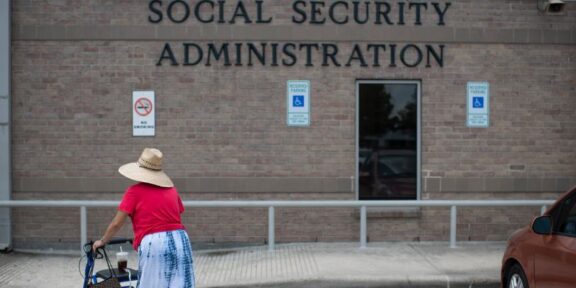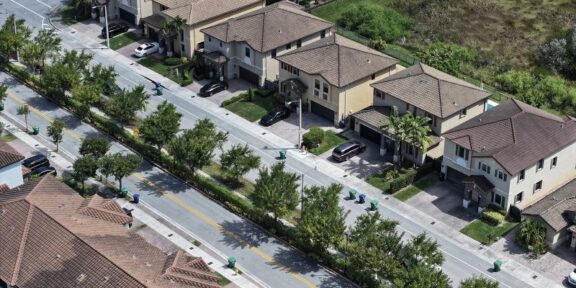San Salvador, El Salvador
CNN
—
For many years, life decisions had been bleak for a lot of in El Salvador: Depart or die. Dubbed the “homicide capital of the world,” there was a median of a murder an hour in early 2016, on this nation of simply 6 million individuals — two million fewer than name New York Metropolis dwelling. Gang warfare drove an exodus of Salvadorans, principally north to the US. However now, the safety state of affairs is so completely different that individuals are returning, even after constructing good new lives over a long time within the US.
The transformation is due to President Nayib Bukele and his growing grip on energy that has allowed him to convey peace to the streets albeit with a price. Some constitutional rights like due course of have been suspended beneath emergency measures, main to an enormous enhance in incarceration, and an outcry from human rights teams. CNN traveled to the nation to see and listen to what Salvadorans suppose.
Deported, and now grateful
When Victor Bolaños and his spouse, Blanca, misplaced their asylum case in a US immigration courtroom, their ‘American dream’ got here crashing down. After they agreed to simply accept a voluntary departure order, the couple knew they needed to depart behind the life that they had been constructing for over 15 years in Denver and return to their native El Salvador and the situations that had made them flee.
“We got here again 6 years in the past, and the whole lot was unsafe,” Victor recollects, seated within the modest dwelling the couple now shares within the capital, San Salvador. At 65, his voice carries the load of what they confronted upon their return in 2018. “After we got here again the state of affairs appeared tough due to the insecurity, numerous robberies, numerous gangs.”
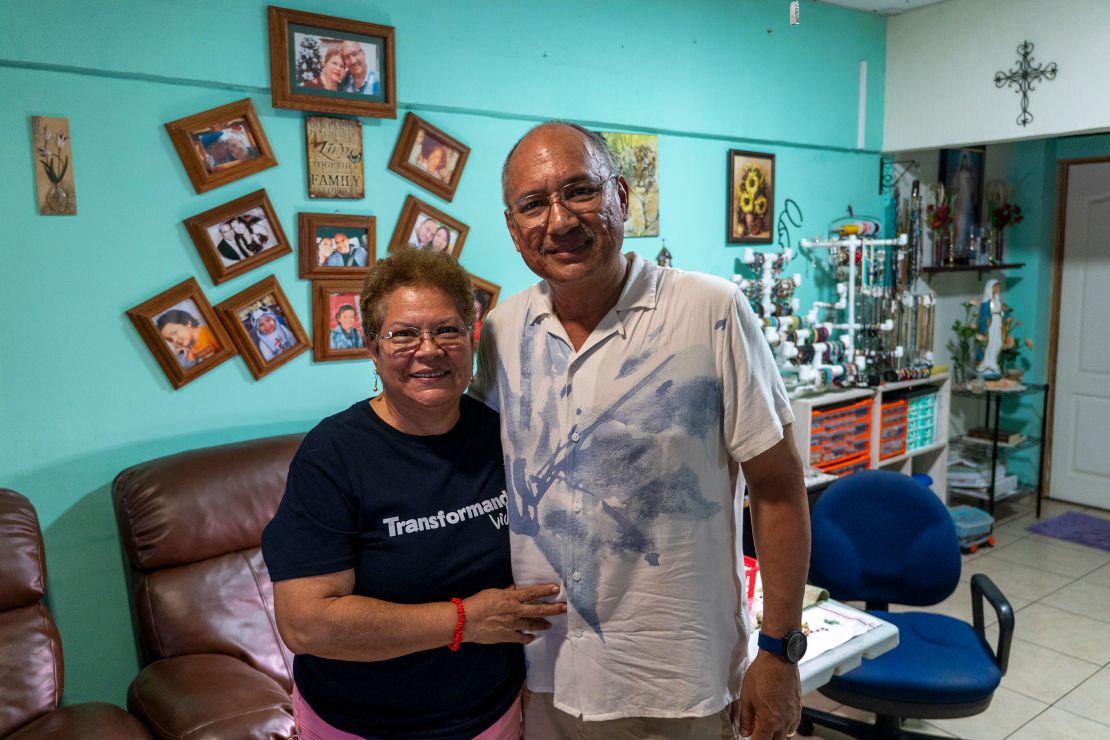
However a few years after their return, one thing sudden occurred. The relentless day by day violence eased, and streets started to calm. The suffocating worry that had outlined day by day life began to fade.
El Salvador, as soon as synonymous with violence and waves of emigration, noticed a dramatic drop in crime. For a lot of residents, this shift supplied extra than simply security — it supplied a lot wanted hope. The world, too, took discover. Abruptly, the small Central American nation gave the impression to be reinventing itself beneath Bukele, who was elected President in 2019 on the age of 37. When his New Concepts social gathering later took management of Congress, it was simpler for guidelines to be bent or damaged. Bukele received re-election, despite the fact that the nation’s structure had barred anybody standing for a second time period. A “short-term” state of emergency granting authoritarian powers of detention is now greater than two years previous. Human Rights Watch says that even youngsters are being caught up in “extreme human rights violations.”
But in San Salvador, Blanca sits in her front room, rigorously crafting handmade jewellery. “Now, one feels protected, freedom is felt in our nation,” she says.
She and her husband, Victor, say the improved safety has allowed them to begin a small jewellery enterprise from their dwelling, one thing that when appeared inconceivable. “Now you may have a enterprise, should you look, there are entrepreneurs in every single place within the nation,” Blanca says, reflecting on how, not way back, gang extortion would have crippled any such enterprise.
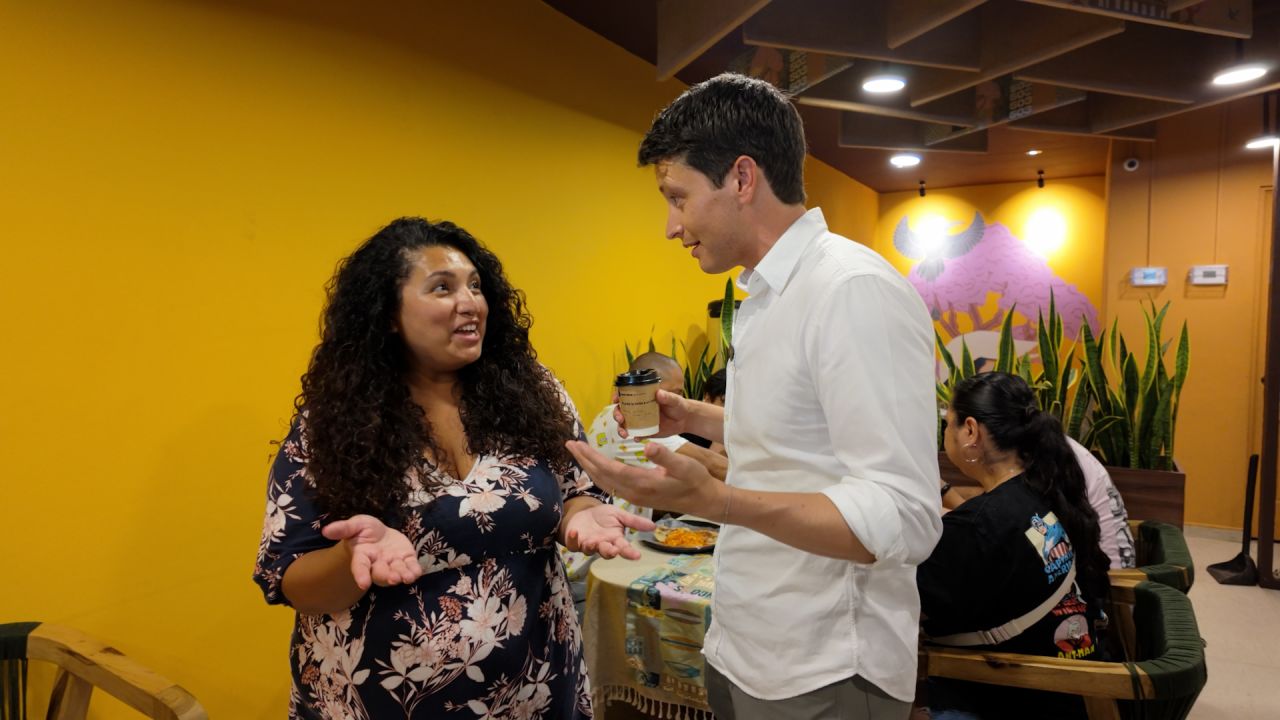
‘This may’t be the nation that I used to listen to about’: Migrant returns to El Salvador
For many years, individuals from Central America, notably from the Northern Triangle of El Salvador, Honduras and Guatemala, have fled violence and insecurity, in search of safety and alternative within the US. However new knowledge from US Customs and Border Safety (CBP) reveals a stunning development — fewer Salvadorans are actually heading north.
In 2022, CBP recorded greater than 97,000 encounters with Salvadoran residents on the Southern Border. By 2023, that quantity fell to simply over 61,000, and 2024 is on monitor for a further decline in comparison with 2023.
Whereas these numbers might seem promising, the basis causes of migration stay complicated. Many Salvadorans nonetheless depart their nation resulting from financial hardship and lack of alternative. Though El Salvador’s financial system has proven gradual, regular progress since Bukele took workplace, in response to the World Financial institution, the nation nonetheless struggles to supply adequate alternatives for its residents.
For the previous 27 years, Diego Morales has constructed a life removed from dwelling. The 48-year-old actual property investor, husband, and father of three left El Salvador in 1997, chasing the security, stability, and alternative that the US needed to supply. The thought of returning had by no means crossed his thoughts — till the grim tales of violence that had haunted his homeland for therefore a few years had been changed by tales of newfound security.
Diego’s childhood was marred by a relentless sense of hazard. “I’d get up, go to high school and discover lifeless individuals on the road,” he recollects, his voice bearing the burden of the painful reminiscences as he sits inside his well-kept, suburban Houston dwelling.

See the previous gang lookout spot that might turn out to be El Salvador’s subsequent luxurious resort
However right this moment, El Salvador is now not the nation he fled. “Now it’s protected and many individuals are going again,” Diego says, his phrases a mirrored image of the optimism spreading amongst Salvadorans and others overseas.
The nation’s popularity has dramatically shifted. As soon as identified for violence, El Salvador is now attracting waves of buyers. “Many individuals, even People … now we have pals from Florida, from Austin, from Hawaii, trying to purchase (property),” he says, an indication of simply how far the nation has come.
Diego himself is making ready for a return to the land he as soon as left behind. He has already invested in Tamanique, his hometown about an hour’s drive from the capital, the place he constructed a seaside resort that he now runs remotely.
Alongside the Salvadoran shoreline, you could find seaside cities like El Tunco, El Zonte, and La Libertad buzzing with new development, capturing the eye of vacationers and actual property builders desperate to capitalize on the nation’s rebirth. Cliffs that had been as soon as gang lookouts are actually being thought-about scenic areas for motels.
“As quickly as President Bukele introduced safety to this nation, the whole lot went up (in worth),” Diego says, including that land that value round $100,000 5 years in the past is now going for ten instances that value.
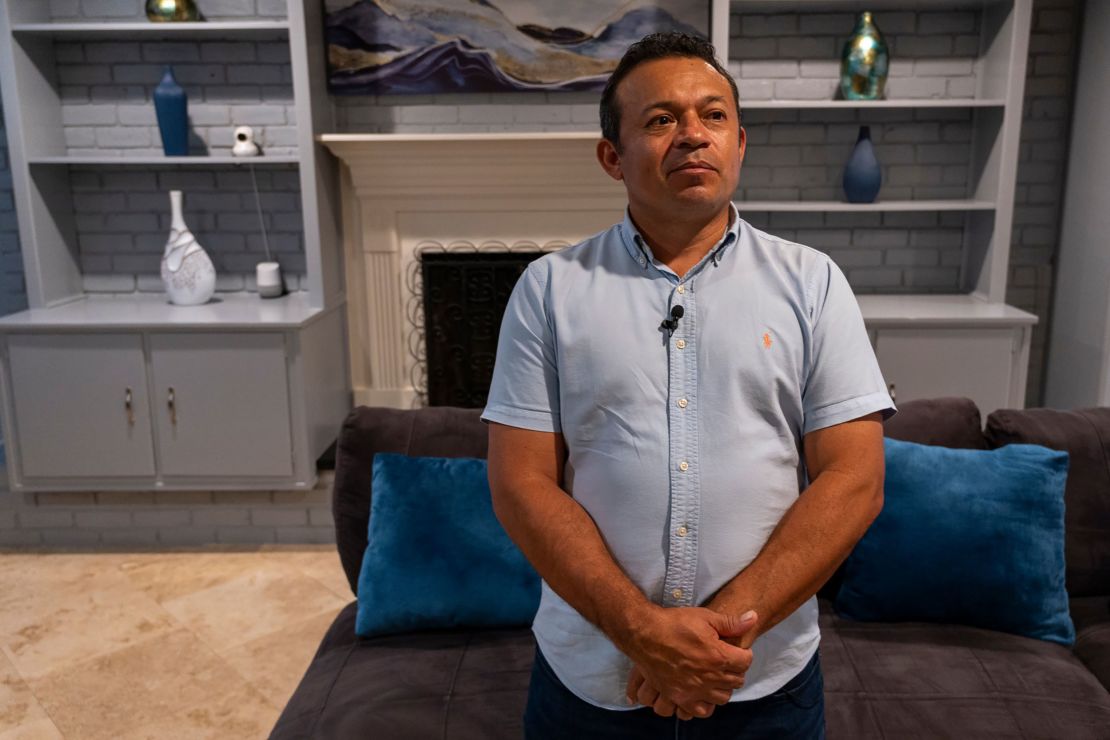
And the Salvadoran dream is not only his — his 23-year-old son, Jairo, a natural-born US citizen additionally plans to comply with in his father’s footsteps. “We’ve had conversations… it’s already beginning,” Jairo says, his eyes lit with the promise of returning to his roots.
El Salvador’s authorities is courting those that left with a program of tax exemptions on belongings and autos for residents who return dwelling. Since 2022, almost 19,000 Salvadorans have moved again beneath this initiative, in response to authorities figures.
A decade or so in the past gangs like MS-13 and Barrio 18 terrorized communities, extorting companies and waging brutal turf wars over management of neighborhoods, and El Salvador was probably the most violent nation within the Western Hemisphere, in response to InSight Crime.
However one thing extraordinary has occurred since then. By 2022, the variety of murders started to drop dramatically, and the following yr there have been 154 homicides — a staggering 97.7% lower in comparison with 2015, in response to authorities figures. Bukele even tweeted that his nation’s murder price was the bottom in all of the Americas.
The sharp decline adopted Bukele bringing in emergency measures giving police the facility to detain suspects with out prices for as much as 15 days and deploying the navy throughout the nation. The brand new guidelines, that are nonetheless in impact, allowed an unprecedented crackdown on gang exercise, with greater than 80,000 individuals detained for the reason that state of emergency started in March 2022.
Central to this effort is the newly constructed “Terrorist Confinement Middle,” or Cecot, an enormous jail complicated with the capability to carry as much as 40,000 inmates. The utmost-security jail at present holds 14,000 gang members — all accused of getting murdered no less than one individual. Photographs from Cecot present tattooed males with their heads shaved in a warehouse-sized concrete room crammed with steel bunks, or sitting in tight rows on the bottom, sporting nothing however white shorts, their heads bowed and palms behind their backs. And, in response to Salvadoran authorities, these despatched to Cecot won’t ever be launched.
“We’ve no mercy in crimes associated to life,” Safety Minister Gustavo Villatoro instructed CNN. “I believe that is the best way to face a serial killer. It’s a must to work, it’s important to put together your legal guidelines, in order that once you put them in jail they’ll by no means be launched, as a result of the society doesn’t deserve that,” he mentioned. “Someone who on daily basis kills individuals, rapes our ladies … How will you change their thoughts? We aren’t silly.”
Villatoro’s phrases echo the brutal actuality El Salvador has confronted for years. He claims that gang members had been required to kill no less than one individual as a part of their initiation into teams like MS-13 or Barrio 18.
“Think about a serial killer in your state, in your neighborhood, being launched by a choose, how would you are feeling as a citizen?” he asks. “We don’t have details that somebody can change the thoughts of a serial killer, and now we have greater than 40,000 in El Salvador.”
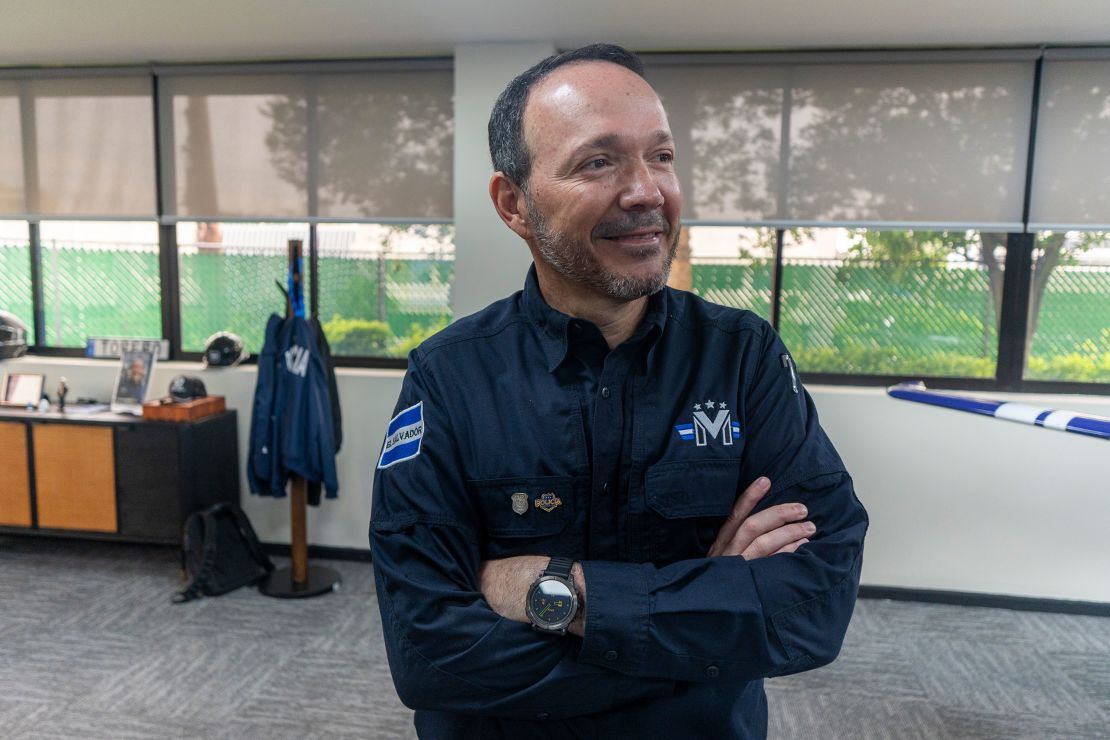
The federal government’s hardline strategy was not spontaneous; it was meticulously deliberate. Villatoro and members of Bukele’s cupboard had begun finding out the gangs as early as 2017.
“Earlier than you begin a warfare, it’s important to know your enemy,” he defined.
Whereas the federal government’s relentless marketing campaign has been praised by many for restoring peace, it has additionally attracted important criticism. Human rights teams have accused the Bukele administration of widespread abuses in its battle towards the gangs. Villatoro, nevertheless, dismisses these claims, asserting that the main target ought to be on the victims, not the criminals.
“What concerning the society, the great residents that you’ve got within the nation … The place had been (these human rights teams) once we misplaced 30 Salvadorans in our nation a day?” he asks pointedly.
Bukele himself has been unflinching in his rhetoric. In 2022, he famously challenged human rights advocates, telling them to “take” the gang members in the event that they cared a lot. “Come decide them up — we’ll give them to you, two for the value of 1,” he declared.
The president’s iron-fist strategy to safety has earned him reward from some US conservatives, who’ve overtly applauded Bukele’s ways. Nonetheless, at this yr’s Republican Nationwide Conference, former US President Donald Trump took an sudden swipe at Bukele when addressing the nation’s newfound security.
“In El Salvador, murders are down 70 p.c. Why are they down? They’re down as a result of they’re sending their murderers to the US of America,” Trump claimed, providing no proof to help his assertion.
CNN requested Safety Minister Villatoro whether or not Trump’s assertion held any reality.
“No,” Villatoro replied. “The issue with that, you (Trump) don’t have details, you don’t have proof, however as an alternative, now we have proof of the place we put our terrorists,” the minister mentioned, referring to Cecot, the huge jail the place hundreds of gang members are held
For months, CNN has sought entry to Cecot, however the Salvadoran authorities has repeatedly denied our requests to go inside.
In different detention facilities, lower-ranking gang members and different criminals are tasked with fixing what the gangs broke and erasing their presence. Some inmates are despatched to rebuild houses whereas others smash tombstones commemorating underworld leaders.
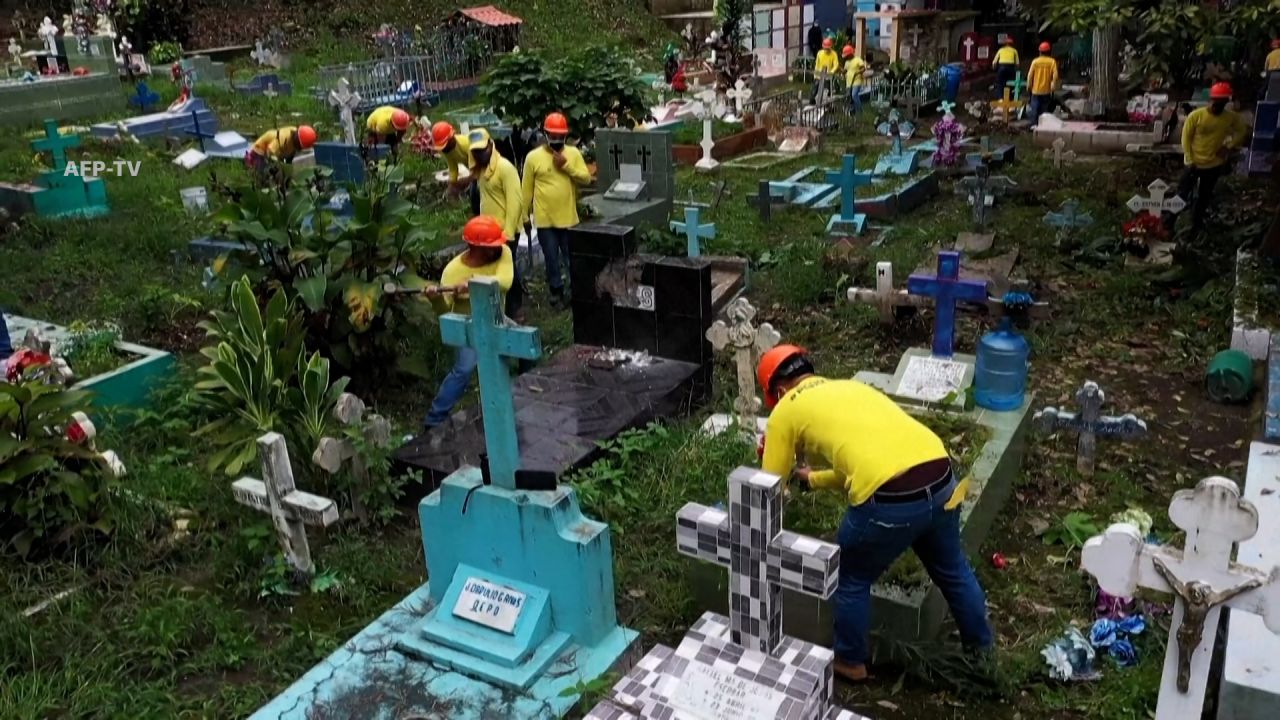
El Salvador is erasing all proof of gangs from the streets to the cemetery
Jailed ‘for having lengthy hair and tattoos’
In early 2024, Juan Carlos Cornejo discovered himself swept up in Bukele’s mass arrests after an nameless name to the police accused him of “illicit affiliation.” Hours later, he was in jail, confused and terrified.
Juan Carlos believes he was focused merely due to how he seemed.
“I used to be accused of illicit affiliation, however I’ve nothing to do with that. I like music, rock, so my look was completely different. I had lengthy hair,” he mentioned from his dimly lit, mosquito-ridden dwelling in Santa Ana, a metropolis about 35 miles from the capital. “I’ve tattoos, however these are inventive expressions,” he mentioned, his frustration palpable.
“There was no investigation, nothing,” he claims.
Juan Carlos was in jail for 5 lengthy months. Earlier than his detention, he had been working as a veterinary assistant, treating sick or injured pets, and he insists he had by no means been arrested earlier than.
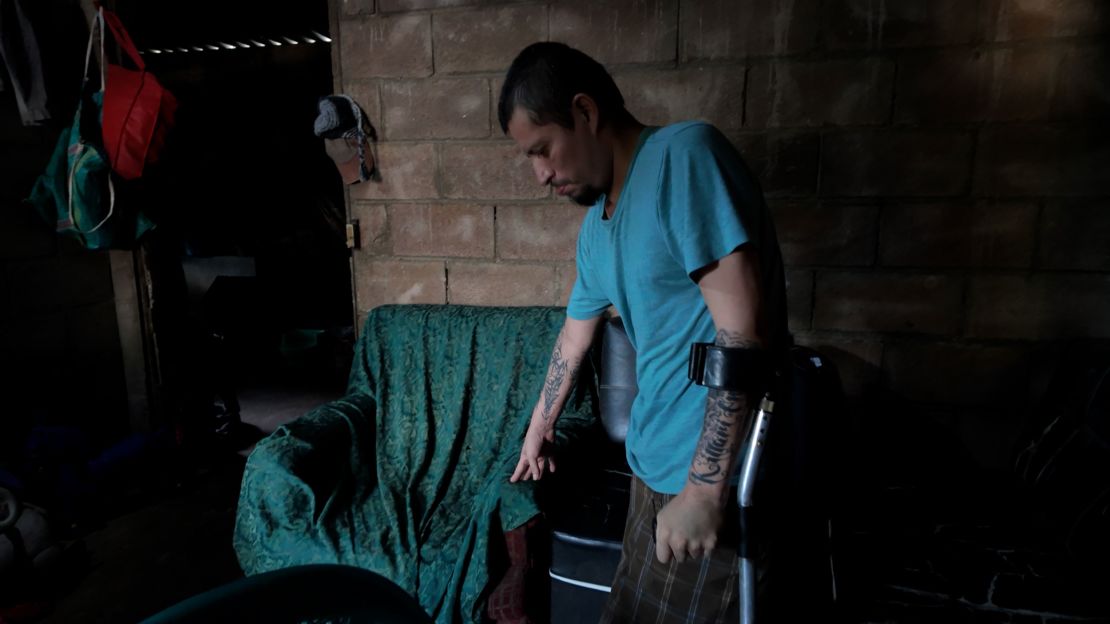
His launch got here solely after Socorro Jurídico Humanitario (SJH), a bunch devoted to offering authorized counsel in instances of human rights violations, efficiently filed a writ of habeas corpus on his behalf. However Juan Carlos’ story is much from distinctive. In response to SJH, between 33,000 and 35,000 individuals have been “detained in an arbitrary method with none justification” for the reason that state of emergency started.
“The one argument that was given … is that his arrest was resulting from an ‘nameless name’ that had been acquired, nevertheless, no proof was ever proven of this alleged name,” the group instructed CNN.
Regardless of widespread criticism of those ways, the Bukele authorities stands agency. Officers argue that these measures — although harsh — are completed lawfully and are essential to safe the nation’s future. And so they spotlight efforts to rehabilitate tens of hundreds of inmates convicted of lesser crimes.
Armed troopers on the streets — and thanked
Critics argue that Salvadorans have traded freedom for safety, however the individuals we met say they’ve by no means felt so free. There’s the mom laughing as she takes her skipping toddler to the park, not afraid of getting caught in a gun battle or stumbling over a corpse or having to pay the gang extortion “hire” to easily enter her personal neighborhood. There’s the daddy, now not nervous his son will probably be recruited by gangs. In contrast to in locations like Cuba or China, the place residents can appear nervous to criticize repressive regimes, in El Salvador the optimism seems actual.
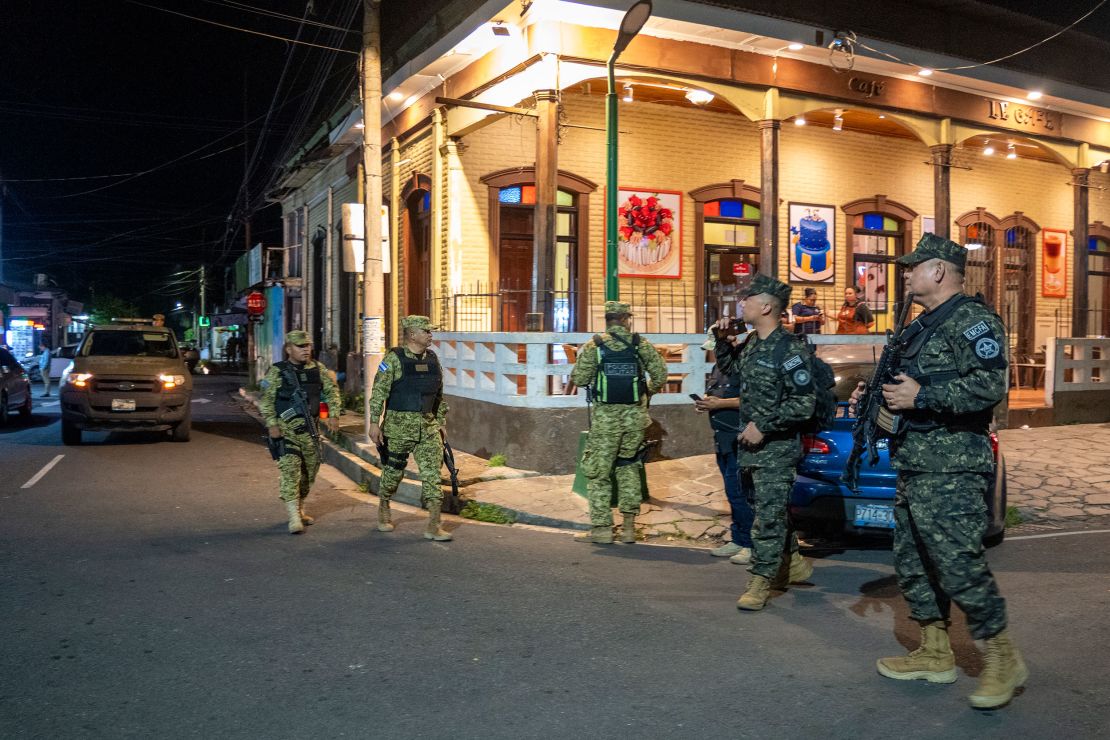
Teresa Lilian Gutierrez is caught within the center, and her expertise exhibits the various complexities of life in El Salvador right this moment.
“Now it’s protected, it’s calm,” she instructed us on a road in La Campanera, as soon as among the many most harmful neighborhoods in San Salvador. “Earlier than nobody would go to, not even household.”
However her son who helped her financially will not be capable of go to, she mentioned.
“He’s been detained for 2 years in Mariona (jail). He isn’t a gang member, he was taken within the state of emergency,” she mentioned, exhibiting footage of her son working as a cashier in a restaurant.
“I ask the federal government to get him out, please … I spoke to the lawyer final yr as a result of they had been going to launch him, however she mentioned no, they’re not going to present him to me,” she mentioned.
President Bukele enjoys one of many highest approval rankings in Latin America, a sentiment echoed by the individuals we meet whereas with the Salvadoran military touring a as soon as gang-infested space outdoors San Salvador.
Armored vehicles and uniformed troopers are now not terrifying causes to run however probabilities for curious youngsters to ask questions or for supporters to seize a selfie.
“It was so dangerous earlier than, you couldn’t go anyplace,” one girl says, beaming as she snaps an image with Protection Minister René Merino, who has turn out to be an emblem of the federal government’s hardline safety technique. Just a few years in the past, nobody on this space would have seemed members of the police or military within the eye, Merino mentioned, however now it’s all modified. Moments later, one other resident steps ahead, and thanks the minister and poses for a photograph, apologizing for interrupting our interview. In what feels extra like a victory parade than a legislation enforcement patrol, we cease dozens of instances over the course of a pair hours as residents excitedly relay their gratitude.
“Solely (God) is aware of how we had been doing earlier than,” one girl instructed CNN, her voice trembling as her eyes crammed with tears. Her feelings reveal the deep scars left by the violence that when consumed their day by day lives — and the aid that has adopted.
However the looming query is: what occurs after 2029, when Bukele’s time period involves an finish? In a latest interview, the president declared he wouldn’t search a 3rd time period, leaving many to surprise concerning the future.
For some, like Blanca Bolaños, the reply is already clear. “I voted for Nayib this time, and the final, and if he runs once more, I’ll vote for him,” she says with unwavering conviction.
Because the nation grapples with its transformation, Bukele’s legacy and controversial ways will probably be examined. Whether or not El Salvador’s newfound stability endures or falters, solely time will inform. However for now, amongst those that say their lives have been modified, there’s little doubt: they consider in Bukele, and they might comply with him once more.





